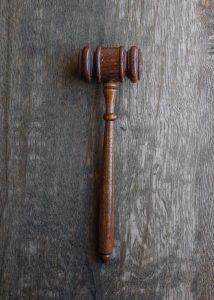WICA vs Common Law

Workers can do it through WICA or common law when seeking work-related compensation. WICA Singapore was passed in 2019, but workers have sought compensation through common law before that.
WICA vs common law share several similarities. For example, WICA Workers seek work injury compensation under both. However, there are differences. For example, the compensation under WICA is specific and known. Common law compensation may be lower or higher. Under WICA, a lawyer is not needed.
There are several reasons why some workers choose to use WICA or common law. The reasons are based on the strengths of each law.
WICA Is Easier And More Straightforward
WICA insurance has a set process that, once followed, has a known outcome. An employer must report an employee’s work-related injuries to MOM within ten days. The employee can also report the injury if the employer fails to do it. Either way, once the process starts, the path to compensation is known.
WICA Compensation Amount Is Predetermined
The WICA insurance compensation is predetermined and known because it is pegged to the average monthly earnings. Unlike WICA Singapore, under common law, compensation is unknown.
There is no limit to the compensation claim one can request when pleading with your case. The amount will be determined once the worker proves the injury, its severity, and its impact on his livelihood. The worker will also need to justify why the compensation is requested.
Workers Need Lawyers Under Common Law
When seeking work injury compensation under common law, workers need a lawyer. Unfortunately, workers have to pay the lawyer out of pocket, making the process expensive. Under WICA, workers don’t need a lawyer. They can present the case without help or knowledge of the law.
Workers Have To Prove The Employer Was At Fault
Common law is more complex because the worker has to prove that the employer is responsible for the accident, which is one of the reasons why workers prefer WICA insurance. Under WICA Singapore, workers only have to prove that the injury occurred at work. Whether they made a mistake or the employer is responsible for it is a non-issue.
This is one of the most challenging steps in the common law because workers are granted their claims when they prove negligence on the employer’s part.
The Ministry Of Manpower Is Involved In WICA
The Ministry of Manpower (MOM) is critical in the compensation process for work injuries. It helps keep employers and workers processing the claims in check. Under the common law, MOM is not involved at any point. The success of the case depends on how solid the case is and how good the lawyer is at arguing the case.
WICA insurance has its advantages, and so does common law. If a worker suffers a grave injury and feels the compensation under WICA insurance is too small, they should try their luck under common law. However, they need to have sufficient evidence. Otherwise, they risk losing even the little compensation they would have gotten under WICA.
Unfortunately, workers can only use WICA or common law. They cannot use both to see which one works for them. However, workers can switch from one to the other before a year elapses when one wants to file a claim under WICA. Likewise, one can move to common law before MOM issues a notice of assessment.
